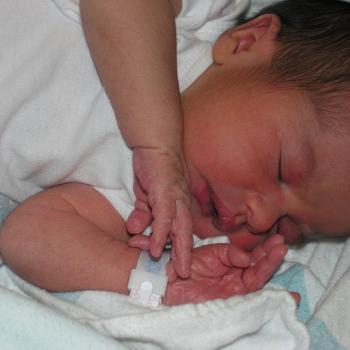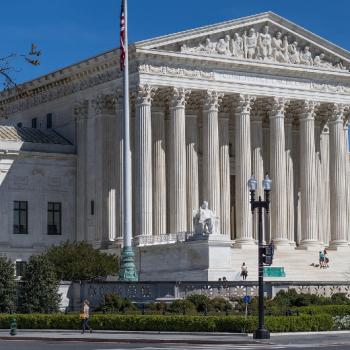My Jewish pedigree must be impeccable; I looked at him and, with what can only be described as chutzpah (Yiddish, from the Hebrew: supreme self-confidence; nerve, gall), replied, "Pastor, you need to do something else with your Christian guilt. The rabbis who will not engage with you about Israel and Zionism are not acting as friends of Israel. We Jews are in great peril, and Israel is rapidly descending into fascism. We need your help as a Christian leader and as a worker for justice. Holding back from engagement in this struggle is not what Jesus would want you to do." That encounter was my "Road to Damascus" moment, and the time when I found my voice to speak to the core issue in the discussion about Israel and Palestine.
Parallel crises, parallel opportunities
The crisis for Jews in confronting our crimes toward the Palestinians interlocks with a crisis for Christians still struggling with the horror of Christian sins against Jews. Catholic theologian Gregory Baum has written about the church's effort to reconcile with the Jewish people. The problem, states Baum, is that "if the Church wants to clear itself of the anti-Jewish trends built into its teachings…it must examine the very center of its proclamation and reinterpret the meaning of the gospel for our times….Auschwitz summons us to face up to the negative side of our religious and cultural heritage."
Support for the State of Israel has been central to the Christian effort to atone for anti-Semitism. But the horrific consequences of our Jewish homeland project now pose a challenge to Christians committed to human rights. Ironically, political Zionism owes its success in part to the Nazi Holocaust, the same catastrophe that spurred a radical reevaluation of the foundations of Christianity. Historians have also noted the influence of a deeply rooted Zionism in Western Christianity in the support for what amounts to the illegal colonization of Palestine by the Zionist movement.
So there are two strains within Christianity: one conservative (Christian Zionism) and one liberal/progressive (interfaith reconciliation). Both support the concept and the reality of Jewish hegemony in Palestine. Both act powerfully to stifle criticism of Israel. This helps explain the extreme reluctance of most Christians to call Israel to account for its human rights abuses. We are presented with a tragic irony: Christians, attempting to atone for the crimes committed against the Jews, are by this very fact blocked from confronting the crimes committed by the Jews.
Where does this leave Christians, committed to working for justice and equality at home and abroad? Where does this leave Jews who find themselves torn between their commitment to religious and racial equality and their loyalty and attachment to the State of Israel? And what must we do as a Jewish community as we become increasingly aware of the human rights catastrophe we have created in our quest for freedom and dignity? What is the future we want to create for ourselves?
This parallel crisis presents challenges and opportunities for both faith communities. Christians must indeed, as Baum states, re-interpret the meaning of the gospel for our times, but today this means standing up for justice for Palestine, even when this creates tension and division within the churches and for many an agonizing disruption in Christian-Jewish relations. And Jews have a chance to redo the crisis of having lost the Temple and Jerusalem in the first century when in self-defense we retreated into a brittle exceptionalism and ultimately a misguided quest for a return to ethnic nationalism that has resulted in our embrace, in theologian Walter Wink's terms, of the "myth of redemptive violence."
The problem, as I pointed out in my 2011 blog post about Peter Beinart and his brand of "progressive Zionism," is not the occupation, nor is it the religiously-based racism of fundamentalist Jewish settler-colonists; the problem is a state founded on an ethnic nationalist ideology. "The late and deeply mourned Tony Judt," I wrote then, "got it exactly right in his NYRB piece back in 2003: 'The problem with Israel [is that]…it has imported a characteristically late-nineteenth-century separatist project into a world that has moved on, a world of individual rights, open frontiers, and international law. The very idea of a 'Jewish state' — a state in which Jews and the Jewish religion have exclusive privileges from which non-Jewish citizens are forever excluded — is rooted in another time and place.'"
When the history of this time is written, church leaders will be held accountable for their actions, as they are now with respect to black liberation in this country and in South Africa. Someday, when we look back on this period in our history, we Jews will be in deep mourning. We will be on our knees in contrition for what we have done in the name of our own survival and our own redemption. We must honor the memory of the Jewish community of Europe that perished by committing ourselves to "never again" for all peoples. If we are to be true to our prophetic tradition and our demonstrated commitment as a community to human rights, we must come to the realization — and soon — that today, it is the Palestinian story that is our story.




